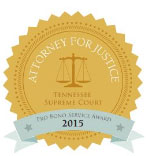OIG Targets Physician Compensation Arrangements
On June 9, the OIG issued a Special Fraud Alert cautioning that physician compensation arrangements, such as medical directorships and other financial arrangements, violate the federal anti-kickback statute if one purpose of the compensation arrangement is to compensate the physician for past or future referrals. The OIG has previously cautioned on the risks of physician compensation arrangements, and the June 9 Alert is in response to recent settlements with 12 individual physicians who entered in problematic medical directorship and office staff compensation arrangements. The OIG alleged that the compensation arrangements constituted improper remuneration in violation of the anti-kickback statute for several reasons: 1. The payments took into account the volume or value of the physicians’ referrals to the entity making the payments, 2. The payments did not reflect fair market value for the services provided, 3. The physicians did not actually perform the services required by the compensation arrangements, and 4. Some of the physicians had entered into an agreement for an affiliated health care entity to pay the salaries of the physicians’ front office staff, which relieved the physicians from a financial burden that they would have otherwise incurred. Takeaways from the Special Fraud Alert include: 1. The OIG is continuing to increase its oversight of physicians who participate in the Federal health care programs (Medicare, Medicaid, TriCare), 2. Any compensation arrangement between a physician and an entity to which the physician refers patients must comply with the anti-kickback statute’s fair market value requirements, cannot be based on the volume or value of referrals from the physician, and must meet other requirements set forth in the anti-kickback statute’s safe harbor regulations. 3. Compensation arrangements must be bona fide, meaning that the services to be provided under the arrangement must be necessary and the physician must actually perform the services. The Fraud Alert is a reminder that physician compensation arrangements must be property structured, documented and monitored to ensure both initial and ongoing compliance with the anti-kickback statute. The OIG may come across physician compensation arrangements in a variety of ways that do not directly involve the physician, such as in the course of a hospital review or a whistleblower who reports the questionable arrangement to the OIG or other enforcement agency. At the end of the Fraud Alert, the OIG solicits whistleblower reports of improper financial arrangements. The OIG will not hesitate to pursue individual physicians, and thus it is incumbent that physicians be knowledgeable of their obligations under the fraud and abuse laws; and be very familiar with the terms and conditions of financial arrangements with entities with which they have a referral relationship in order to mitigate risk of non-compliance. In the 12 recent settlements that are the subject of the Special Fraud Alert, the OIG found that the physicians were an integral part of the scheme to defraud the government and therefore subject to liability under the Federal Civil Monetary Penalties statute. Violations of the fraud and abuse laws can also carry criminal penalties. The link below provides further analysis of the June 9 Special Fraud Alert....
Read MoreAssignment of Rights Under Insurance Policy
On July 1, 2015, the Tennessee Supreme Court issued its opinion in Action Chiropractic Clinic, LLC v. Hyler, et al., holding that a patient’s “Assignment of Rights” to a medical provider must be clear and unambiguous in order to be enforceable by the medical provider. The opinion provides critical guidance to medical practices seeking to protect their right to payment from third party legal settlements. In Action Chiropractic, the patient received chiropractic treatment due to injuries sustained in an automobile accident. The patient was not the driver of the vehicle, and had made a claim against the driver’s automobile liability insurance company, Erie Insurance Exchange. Action Chiropractic agreed to defer receipt of payment from the patient until the patient’s legal claim against Erie was settled, provided that the patient executed an Assignment of Rights directing Erie to either (i) pay Action Chiropractic directly in the amount of the patient’s chiropractic bills, or (ii) make the check payable to the patient but mail the check to Action Chiropractic. In determining that the Assignment of Rights signed by the patient was not effective, and therefore unenforceable, the Court analyzed the language of the “Assignment of Rights” provision signed by the patient. Importantly, the Assignment of Rights directed the patient’s health insurance, automobile insurance, or other party obligated to pay medical expense benefits to the patient to make the payment directly to Action Chiropractic. Erie did not honor the Assignment of Rights, but instead made the payment directly to the patient. The patient, in turn, failed to pay Action Chiropractic and Action Chiropractic filed suit seeking to enforce the Assignment of Rights. The Supreme Court noted at the outset that Erie was not obligated to honor the Assignment of Rights for several reasons: 1. Erie was not the patient’s insurance provider, but was the insurance provider for the third-party driver of the vehicle. Erie did not consent to the Assignment of Rights and had no privity of contract with Action Chiropractic. Therefore, Action Chiropractic was merely an incidental beneficiary of the settlement payment and had no right to enforce the Assignment. 2. Even if Action Chiropractic did have a right to enforce the Assignment, the Assignment was nonetheless unenforceable under Tennessee law because the clear language of the Assignment purported to make an assignment of medical expense benefits payable to the patient under the patien’s own insurance policy. Erie was not the patient’s insurance provider, but was the insurance provider for the third-party driver of the vehicle. 3. In addition, the Court held that the Assignment language was narrowly tailored to payment for “medical expense benefits,” and did not extend to settlement proceeds paid in settlement of a legal claim. The takeaway from Action Chiropractic is that medical providers must have very specifically drafted assignment agreements to protect their right to deferred payment from or on behalf of patients who are receiving treatment for injuries caused by a third party. The assignment agreements should include language assigning payments received by the patient from any source (including settlement proceeds or court judgments/verdicts from legal claims), should specifically include claims paid by any insurance provider or other third party making payment for the patient’s injuries (not only the patient’s insurance provider), should include the written consent of the insurance provider to be bound by the assignment, and should be clear and ambiguous with regard to what is being assigned. As an additional risk management measure, Griffin Law advises medical providers to obtain a separate written agreement with the patient whereby the patient agrees to remit full payment to the medical provider promptly upon receipt of...
Read More


 Christi is an accomplished attorney and legal executive with a proven track record of representing innovative organizations in all business life cycle stages, both as a corporate lawyer serving on the senior management team and as a private law practitioner. Christi speaks to industry groups on health care legal operations and liability management issues, providing education and tools to improve business performance. She is currently an adjunct professor at the Cumberland University Labry School of Business and Technology.
Christi is an accomplished attorney and legal executive with a proven track record of representing innovative organizations in all business life cycle stages, both as a corporate lawyer serving on the senior management team and as a private law practitioner. Christi speaks to industry groups on health care legal operations and liability management issues, providing education and tools to improve business performance. She is currently an adjunct professor at the Cumberland University Labry School of Business and Technology.